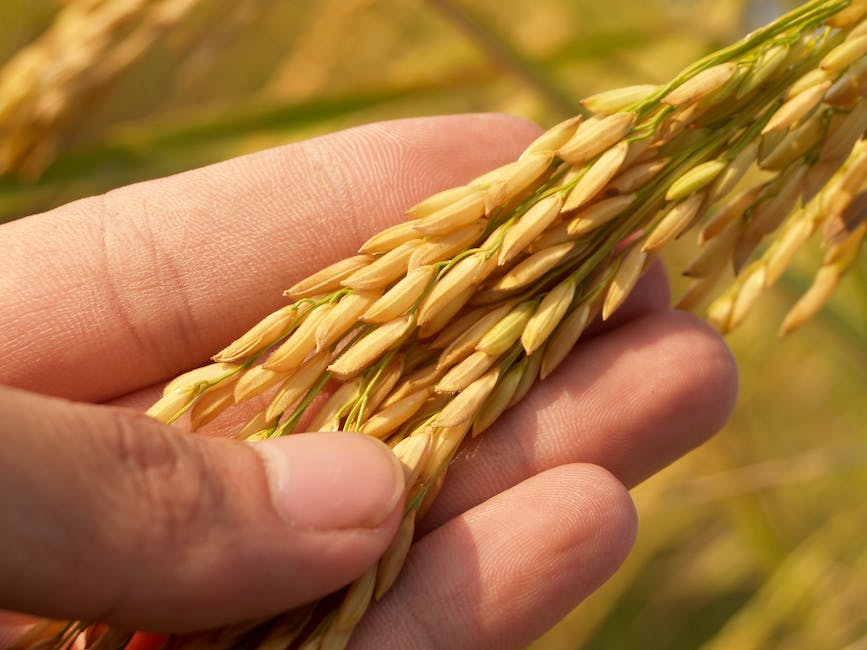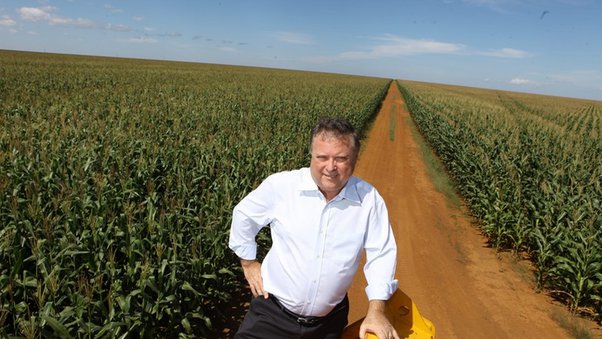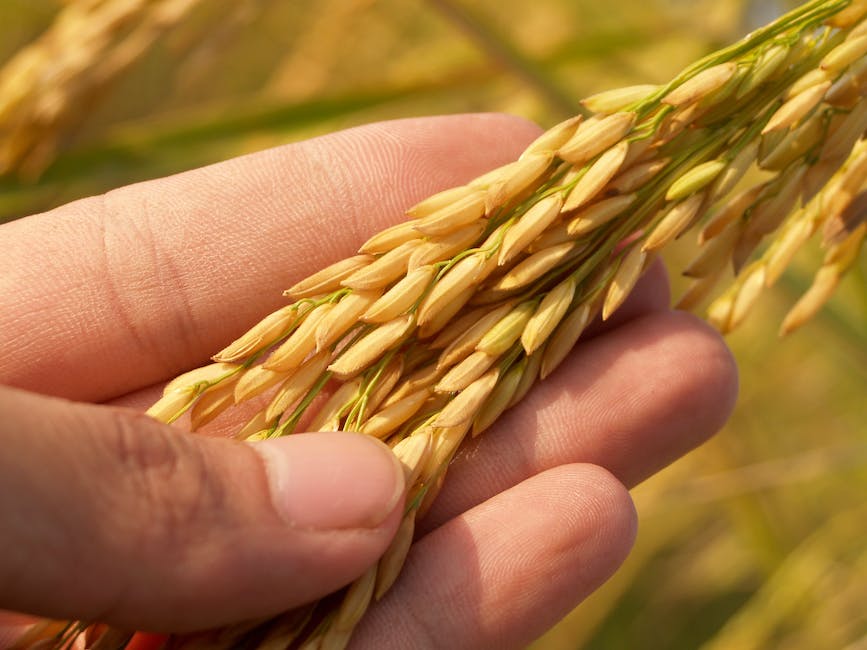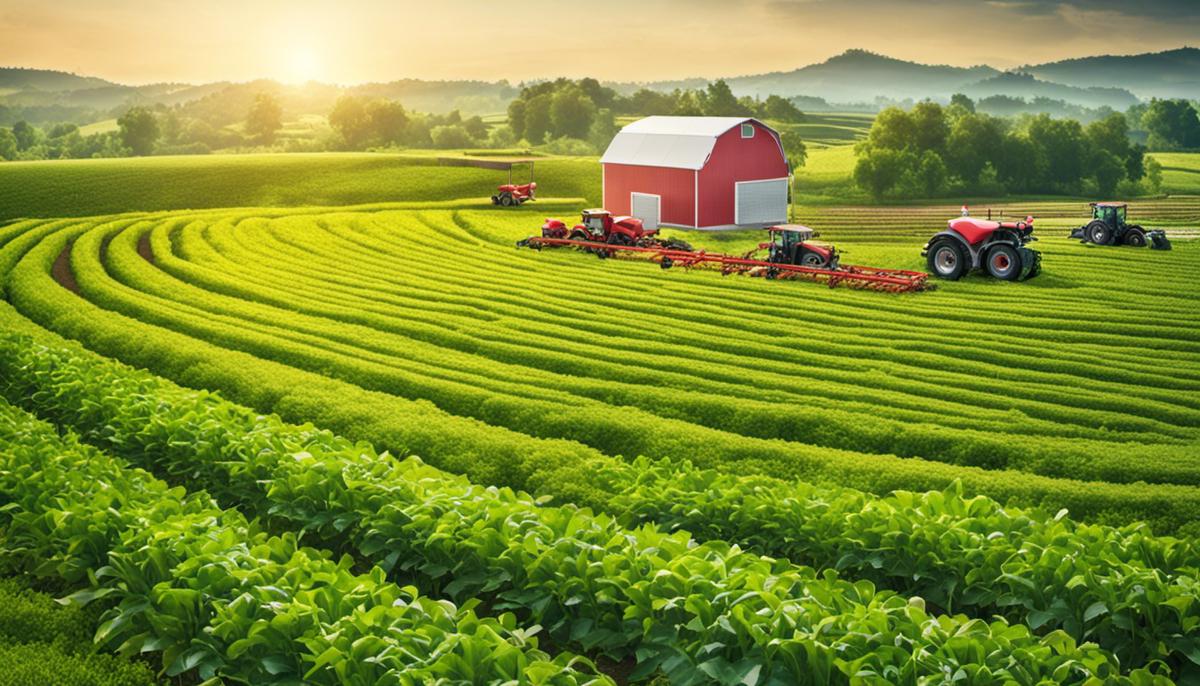

Agridisk
Egypt - Alexandria

How to become a millionaire from farming
Description: Can you become a millionaire from farming? Does the title seem unreal theoretical talk? I will prove to you the opposite, that you can become a millionaire from farming, and that it is very easy. After this article, you will wish you had read it before, and that reaching the first million from agriculture is very easy. All you have to know is how to succeed in your agricultural project, as well as the advantages of agricultural work to get your first million. Flexibility that exceeds any other investment, not the amount of capital required to start the project. Controlling the production cycle and knowing how to target monthly, quarterly, semi-annual, annual, and even every five and ten years. Flexibility is not the possibility of achieving income with different periods of time, but also projects that produce crops on a daily or twice-weekly basis, such as: In the past, the climate, the lack of space available for agriculture, and the high prices of land were among the biggest and most important obstacles to agricultural investment, but now the matter is different. Thus, there are equipped farms, and they can achieve agricultural production twice as large as open farming, and in a smaller area, and they are called agricultural factories, not farms. Farming, for centuries, has been a primary means of livelihood for countless individuals worldwide. However, in the modern era, it encompasses more than just the traditional image of tilling the land and sowing seeds. Today's agricultural pursuits are evolving rapidly, combining technology and innovative methods to boost profitability and reliability. A keen understanding of these modern agricultural techniques—precision farming, organic farming, hydroponics, and aquaponics—can unlock the door to impressive yields and abundant profits. Coupled with effective financial management and savvy business strategies in agriculture, farming has the potential to turn one into a millionaire. Farming isn't what it used to be. In the era of digitization and advanced technology, modern agricultural practices have revolutionized the farming scene, carving out successful pathways for entrepreneurs looking to cultivate growth, attain operational excellence, and maximize yield. The essence of successful farming lies in streamlining the process and adapting to technologies that enhance productivity. The modern agriculture system offers several innovative methods that can pivot a farming business from conventional to cutting-edge. Let's dive into the modern agricultural methods crucial for a successful farming business: Where precision matters, digital technology serves. Precision agriculture is a farming management concept that uses digital information management tools, global positioning systems (GPS), and remote sensing to maximize yields and efficiency while reducing waste. It allows farmers to measure variations in field environments, understand exact crop needs, and avoid over-application of inputs. Everything from soil mapping to yield data, field boundary databases, GPS tractor guidance, remote weather sensors are ultimate game changers, ensuring every seed grows to its fullest potential. In the age of sky-high skyscrapers, why should farming stay grounded? Vertical farming aims to combat land scarcity and climate change effects by growing plants in stacked layers, often integrated into other structures such as skyscrapers, shipping containers. It optimizes plant growth, and utilizes soilless farming techniques such as aeroponics, hydroponics, and aquaponics, making urban farming an exciting possibility. The futuristic models of farming– hydroponics and aquaponics– showcase how growing plants without soil can result in high yield. Hydroponics is a soilless farming method where plants are grown in mineral nutrient solutions, while aquaponics merges aquaculture (raising aquatic animals) with hydroponics, creating a symbiotic environment. These methods save water, provide protection against pests, and offer higher yields than traditional farming. Drone technology and robots simplify monitoring and maintaining large fields. Drones can do aerial crop surveillance, inspect soil health, assist in crop planting, and distribute fertilizers. Similarly, robotic automation can handle time-consuming tasks like harvesting, weeding, and tilling. Implementing these tech advances can save labor costs while increasing efficiency and productivity. Another breakthrough in modern agriculture is genetic engineering, enhancing the characteristics of crops, increasing their resistance to pests and diseases, and improving nutritional content. It also shortens the growth cycle, contributing to an efficient farming process. Success in farming today goes beyond the old-school rake and hoe. It's about leveraging innovation, embracing change, and staying two steps ahead with business savvy. The incorporation of these modern farming methods can lead to flourishing fields, bountiful yields, and eventually, an exponential increase in the overall farming business profitability. In the words of the legendary Steve Jobs, "Innovation is the ability to see change as an opportunity - not a threat." So let's 'reap' the benefits of these innovations in farming today. Leveraging Financial Management for Maximizing Profits in Farming Attaining financial success in farming requires more than just embracing technology and innovative farming techniques. Beyond using precision agriculture, vertical farming methods, hydroponics, aquaponics or employing drones and robotics in farming, it is crucial to master financial management to increase profit margins in this industry. In the modern digital era, incorporating farm management software into your operations isn't an option but a necessity. This technology assists farmers in tracking costs, sales, and overall farm performance, delivering crucial data for strategic decision-making, boosting profitability, and improving productivity. Developing a comprehensive annual budget is fundamental to staying on track with your financial goals. Accurate budgeting allows for effective prediction of monetary requirements, cash flow management, as well as strategic planning of farming operations, market-driven crop choices, and equipment investments that maximize profits. By confirming to just one type of farming, you not only stand a risk against seasonal and market fluctuations but also limit your profitability. Consider diversifying your farming business to spread risk and tap into different market opportunities. From crop diversification to livestock farming or venturing into agritourism, broadening your operations can widen profit margins. Harnessing modern marketing techniques can significantly increase sales. Create a strong online presence, use social media platforms, participate in local farmers markets, or join Community Supported Agriculture (CSA) programs. Understanding customer needs and meeting them efficiently can win customer loyalty and expand your clientele base. To drive down costs, research and engage with cost-effective suppliers. Remember, profit maximization isn't just about increasing sales but also about cutting costs. Leverage your networking skills to negotiate better deals and contracts. By adopting sustainable farming methods such as proper waste disposal, efficient water usage techniques, organic farming, or soil conservation practices, farmers can save costs, meet the demands of a more eco-conscious customer base and maximize profits. Professional accountants who specialize in agricultural businesses can provide valuable insights into tax breaks, credits, or government subsidies available to farmers which would otherwise go unnoticed. They also can assist with financial reporting, cost management, and benchmarking. Remember, in farming, you are not only battling unpredictable weather changes or managing pest attacks but also navigating market dynamics, handling labor issues, managing finances, and more. Therefore, turning a profit requires discipline, consistent implementation of strategic financial management practices, and keeping abreast with the latest trends and advancements in the field. Indeed, the world of farming is not just about sowing seeds and harvesting crops: it involves a myriad of other factors that can make or break an agricultural business. For a more successful and efficient farming enterprise, market research and a sound business strategy are indispensable. Getting into the mind of a consumer is paramount in any business, even in farming. Knowing the expectations, needs, and demographics of consumers; understanding consumer behavior patterns; and identifying trends in consumer choices can be revealed through market research. Market research data can give you insight into which products are popular, which ones are on the decline, and which are still untapped. Equipped with these data, farmers can focus on cultivating what sells. For instance, if market research data reveals a growing trend in organic food consumption, farmers can direct their resources towards organic farming. Similarly, if the data shows a demand for specific fruits or vegetables in a particular season, farmers can plan their harvest accordingly. Furthermore, market research can identify the most lucrative markets. Knowing where the demand for your products lies – whether it be local farmers’ markets, grocery stores, or online platforms – can steer you towards higher profits. Turning this research into a solid business strategy involves systematic planning. Timing is key: coordinate all farming operations, from seeding to harvesting to market delivery, in sync with market demand. Innovation should not be overlooked. The farming industry is ripe with opportunities for tech-savvy entrepreneurs with a knack for finding innovative solutions. Use of AI and predictive analysis can help in forecasting weather conditions and mitigating potential crop diseases, ultimately enhancing the yield and quality of crops. Adopting a customer-centric approach should be at the core of your business strategy. From branding the farm to the packaging of products and customer service, every operational decision should align with customers’ expectations and desires. Partnerships and collaborations can offer a business advantage. Collaborating with other farmers, tech companies, and research organizations can lead to shared knowledge, resources, and market access. Networking can also provide unique opportunities for co-branding, tech-transfer, and sharing innovative farming techniques. Last but not least, adopting sustainability not only aids in environmental conservation but can also appeal to eco-conscious customers. A business strategy incorporating sustainable practices can position you favorably in the market, adding to your unique selling proposition. In conclusion, smart farming isn't just about adopting the latest technology. It requires a careful fusion of market research and a robust business strategy. By embracing these principles, farming can transform from a traditional, reactive operation into a proactive, data-driven, and customer-centric business entity. Ultimately, the journey to becoming a millionaire farmer hinges on executing a fusion of modern farming practices, astute financial management, and an informed business strategy. Success is reliant on holding an inherent respect for the demanding nature of farming, coupled with the willingness to adapt and innovate with time. It means understanding that farming in itself is not merely about producing crops—it is a business enterprise that demands constant learning, resilience, and strategic planning. One must be willing not only to get their hands dirty in the soil but also dive into market trends, budget spreadsheets, and harvest forecasts. Thus, with determination, caution, and insightful strategy, farming can indeed become a—and not just any—path to millionaire status. • Finally, agricultural projects, when managed properly, generate wonderful income, and you can easily get the first million, and you will not see all of its investors and pioneers, except in the event of loss and crying over their project, but in the event of success, no one will tell you what they have achieved in terms of gains So, all you have to do is manage the project well, and wait for the abundant profit.
Characteristics of agricultural projects
For example:

Comprehensive Understanding of Modern Agricultural Methods
Precision Agriculture
Vertical Farming
Hydroponics and Aquaponics
Use of Drones and Robotics
Genetic Engineering

Financial Management in Farming
1. Embracing Farm Management Software:
2. Plan Ahead & Budget:
3. Diversification:
4. Invest in Marketing:
5. Identify Cost-Effective Suppliers:
6. Sustainable Farming practices:
7. Employ Financial Experts:

Market Research and Business Strategy in Agriculture
